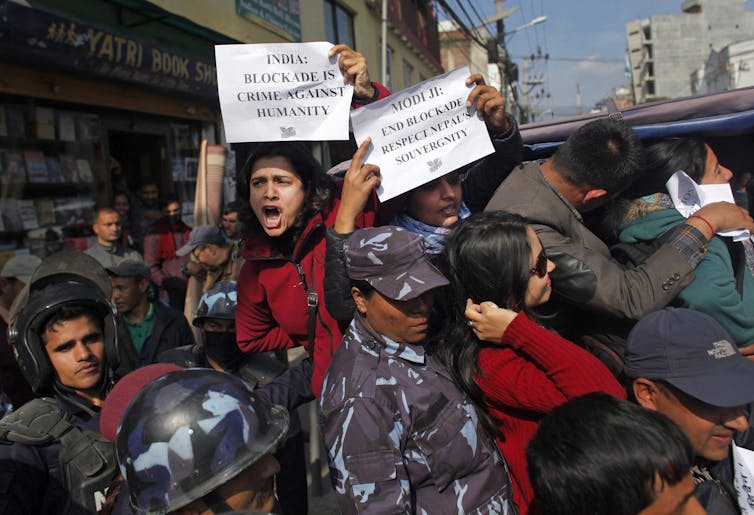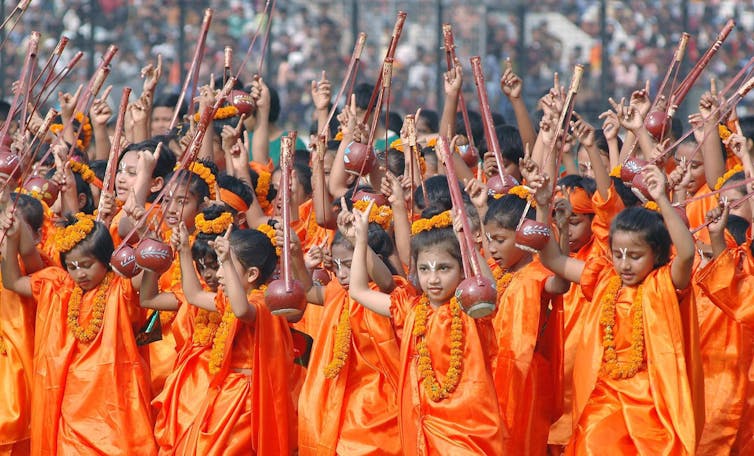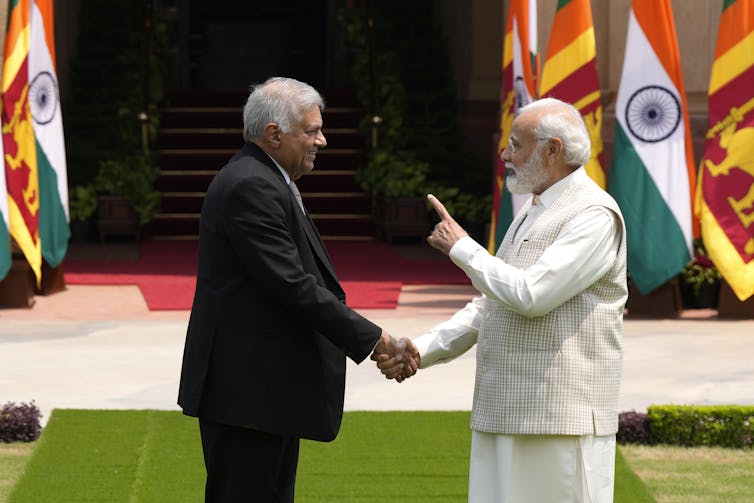[ad_1]
India’s regional politics are shifting. It is looking for to strengthen ties with South Asian ruling elites, together with in Nepal and Sri Lanka, whereas ignoring ongoing ethnic uprisings in these international locations within the hopes of securing its geopolitical pursuits.
The Indian authorities’s opposition to ethnic rights inside its personal borders is well-documented. In 2019, for instance, Narendra Modi’s authorities determined to revoke Jammu and Kashmir’s particular standing as an autonomous area, a transfer recently upheld by India’s Supreme Court.
Jammu and Kashmir misplaced their structure, flag and felony code, and has been became two federally administered territories. India has also failed to handle ethnic conflicts in different territories, together with Tamil Nadu, Punjab and Nagaland.
Indian hypocrisy
Ironically, the Indian authorities backs ethnic actions in different South Asian international locations. It helps or has supported the Madheshi movement in Nepal, the Bengali liberation war in Pakistan and Tamils in Sri Lanka.
Because of its domestic record on ethnic rights, nonetheless, India lacks any ethical authority to help them elsewhere. Instead, it’s now pursuing a coverage of pleasing the ruling elites in its neighbourhood, which it hopes will serve its nationwide aspirations to change into a regional powerhouse like China.
So far, that coverage has had a restricted payoff.
India has been making amends to Nepal since 2015, when it imposed a blockade and obstructed the transportation of petroleum merchandise to Nepal. It needed to pressure the Nepalese authorities to include Madheshi calls for within the Nepali structure.
Nepal refused and, as an alternative, tabled its structure with out addressing Madheshi issues. It additionally signed commerce and transit agreements with China to attenuate Nepal’s dependence on India.
In response, India quietly withdrew its sanctions, and has since
refrained from pressuring Nepalese authorities. The ruling elites and Madheshi leaders were critical of India’s interference.
In brief, India paid a excessive strategic price for the blockade.

(AP Photo/Niranjan Shrestha)
Past Indian missteps
India has had comparable missteps prior to now.
It involved itself within the ethnic battle in Sri Lanka within the early Nineteen Eighties, irritating each authorities officers and insurgents. India in the end stepped apart, and Sri Lanka overcame its ethnic strife with Chinese military and financial assistance.
In 1971, India intervened within the ethnic battle in Pakistan when Bengali Muslims pursued independent statehood to change into modern-day Bangladesh. This help escalated already tense Indian-Pakistani relations.

(AP Photo/Zia Islam)
Even after Bangladesh’s independence, ethnic tensions endured. Jumma peoples fought towards the Bangladesh authorities’s choice to transfer Bengali Muslims to the Chittagong Hill Tracts, the contested homeland of Indigenous minorities. India supported their wrestle by providing refuge to the displaced Jumma folks in its Tripura state.
All of those efforts — previous and current — to help ethnic actions in neighbouring international locations have failed to assist India obtain main participant standing within the area. Instead, they resulted in tense relations with ruling governments for years.
Appeasement efforts
That’s why India is within the strategy of mending ties with the ruling elites in South Asia. Its help for the governments of Sri Lanka and Nepal provides some hints about its future path.
Sri Lanka has been going through global criticism for failing to prosecute struggle crimes and human rights violations that occurred throughout 25 years of ethnic battle. The United Nations Human Rights Council demanded in 2023 that the federal government act promptly to deal with gross human rights violations.

(AP Photo/Manish Swarup)
While India supported earlier UN resolutions on this problem in 2012 and 2013, it consecutively abstained from supporting the final two resolutions, indicating a shift within the Indian method in the direction of Sri Lanka’s ethnic tensions.
Likewise, India has stayed silent in regards to the Madheshi calls for in Nepal since 2015, and Indian parliament has passed resolutions that focus on mending ties with Nepal.
These gestures are a part of an Indian coverage to prioritize the neighbourhood in its overseas relations. Based on this coverage, India will be anticipated to hunt stronger ties with different neighbouring international locations too.
India’s features, minorities’ losses?
These initiatives might assist India reduce China’s affect within the area, however minorities will lose international backing.
South Asian ethnic actions haven’t obtained vital worldwide consideration and help.
In the previous, a lot of the help was coming from India. In the absence of Indian backing, ethnic minorities lack substantive international allies, which their governments can capitalize upon to additional ignore or oppress them.
[adinserter block=”4″]
[ad_2]
Source link